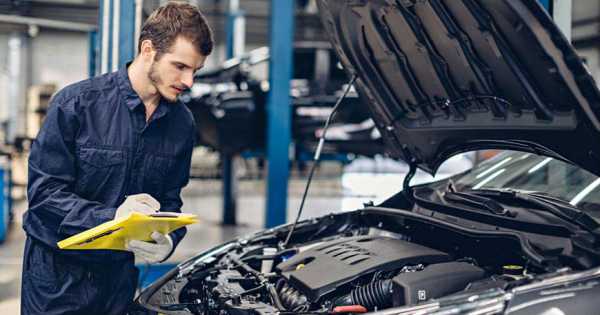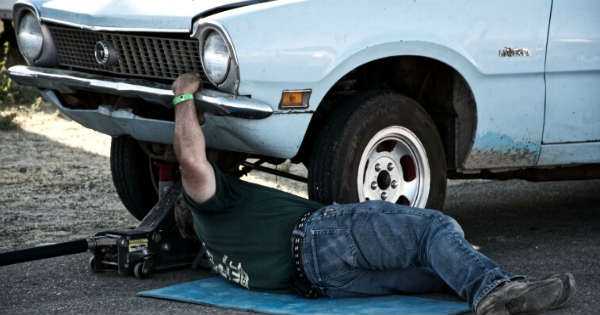Buying a car without the knowledge of what’s under the hood is not the best experience ever. More often than not, it will backfire, and leave a painful reminder in your pockets. You may not have much to worry about when buying a new car, but then, there is a lot to look out for and do some car inspection when buying a used car.

Why Do People Buy A Used Car?
You know how some people prefer tea, and others prefer coffee? That pretty much sums up why people still opt for used cars and not go for showroom lineups.
Talking about being cautious while buying a car, the word “caution” cannot be overemphasized. To be on a safer side in every car purchase, you should always remember to make the most of the total car check.
If you are learning about a total car check for the first time or you are not sure what it entails, we will do our best to explain. So, here is a simple description of what a total car check is all about.
A total car check can best be described as a vehicle check service that gives prospective car buyers detailed information about the MOT history of a vehicle. MOT history includes but is not limited to checking mileage readings and car records mismatch with the DVLA database.
Even though buying used cars has the potential of saving you money and offering some level of high-end features, you should always try not to be carried away. Talking about not being carried away, we always advise car buyers to take car inspection seriously.
Why Are the Advantages of Car Inspections?
Inspections are particularly important because they safeguard you from making the wrong choice of car. Also, you won’t have to deal with the headaches of buying a car that doesn’t meet your standards or requirements.
Other advantages of car inspections are that it saves you from frequent and costly repairs and gives you a chance to assess the quality of the car before paying.
How Do You Get Information About A Vehicle?
Car inspections are mostly done based on information. For instance, you can use a vehicle checker to get information about a car’s history, car title, registration, number plate changes, color, and lots more.
We will highlight more ways in which a vehicle checker can help make car inspection fast and easy in later parts of this article. For now, let’s get back to the types of car inspections.
1. Visual Inspection
When buying a used car, the first thing that comes to mind is a visual inspection. Of course, some level of wear and tear are expected in most used cars, but when it’s severe, like large dents and holes and damages that compromise the integrity of the car, you should pass on the offer.
However, the seller must have done a couple of body works and probably repainted to give the car a facelift. So, you wouldn’t know how much beating the car has taken.
Thanks to the services of a vehicle checker, you can still learn a lot about the history of the vehicle. All you need to do is type in the registration plate number and wait for the report.
While at it, you should also do a visual inspection of the interior and even under the hood. Leakages and corrosion are a no-no.
2. Experiential Inspection
This is the part almost everybody: especially a first-time car buyer, is excited about. The part where you take the car out for a spin — to test drive.
Test driving helps you understand how the car feels. If there is anything wrong with the engine or other mechanical parts, there is little the buyer can do to hide that unless the replaced worn out and broken parts — and that won’t still be enough.
When you take the car for a test drive, pay attention to the handling of the car, suspension, and brake system. Listen closely for noises, shaking parts, and any unusual sign.
If you are not sure about your assessments, you should get a total car check done to help you understand the vehicle’s history.
A total car check report will include the car’s performance, exhaust and emissions, engine number, and every other information you need to stop you from making a potentially costly mistake.
And lastly,
3. Professional Inspection
Bearing in mind that you are not a professional mechanic (and if you are, it’s a plus), there are signs of danger you are likely to miss during an inspection.
No matter how much you know about cars, it would be best if you didn’t rely on the seller’s assurance of the car’s condition and reliability. Always get a professional to take a closer look before you conclude the transaction.
For both your financial well-being and safety, we advise that you carry out inspections alongside total car check. If the car checks all the right boxes, then it’s the one for you.
We hope you’ve picked up a thing or two about car inspections the importance of a vehicle checker. If you have any concerns you will like to share with us, feel free to contact us.
So, you wouldn’t know how much beating the car has taken. Now, if the car passes everything from a visual standpoint, you’ll want to look into getting the car repainted (if you like) but more importantly, you want to make sure you ensure your car paint is protected with the installation of paint protection film.

